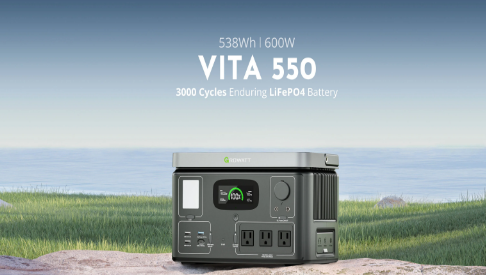In today's fast-paced and technology-dependent world, uninterrupted access to electricity is more critical than ever. Power outages can disrupt our daily lives, affecting everything from communication to comfort and productivity. To combat these challenges, homeowners are constantly on the lookout for the best home power backup solutions. In this article, we will explore the key factors to consider when seeking the best home power backup system, ensuring that you have a reliable source of energy during unexpected outages.
- Assessing Power Needs:
Before selecting a home power backup system, it is crucial to assess your household's power needs. Consider the essential appliances and devices that require electricity during an outage. Calculate the wattage requirements of these items to determine the power capacity needed for your backup system. This assessment will help you choose a backup system that can support your household's energy demands.
- Types of Home Power Backup Systems:
There are several types of home power backup systems available in the market. These include:
a. Standby Generators: Standby generators are permanently installed and connected to your home's electrical system. They automatically activate when a power outage occurs, providing seamless power supply to your entire home. They run on natural gas, propane, or diesel fuel, offering reliable backup power for extended periods.
b. Portable Generators: Portable generators are versatile backup power options that can be easily moved and set up when needed. They run on gasoline or propane and can power selected appliances and devices through extension cords. Portable generators are more affordable but may require manual operation during an outage.
c. Battery Backup Systems: Battery backup systems store electricity in rechargeable batteries and provide power during outages. These systems are often used in conjunction with solar panels, allowing for sustainable and renewable backup power. Battery backup systems are quiet, environmentally friendly, and can be tailored to specific power requirements.

- Consider Fuel Availability and Storage:
For fuel-based backup systems like standby and portable generators, it is essential to consider the availability and storage of fuel. Ensure that the chosen fuel source is readily accessible in your area. Proper fuel storage, following safety guidelines, is crucial to ensure a constant supply during emergencies.
- Installation and Maintenance:
Consider the installation requirements and maintenance needs of the home power backup system. Standby generators require professional installation, as they are connected directly to your home's electrical system. Battery backup systems may also require professional installation to ensure proper integration. Regular maintenance and servicing of the backup system are vital to ensure its reliability and longevity.
- Noise and Emissions:
If noise and emissions are a concern, consider backup systems that operate quietly and have low emissions. Standby generators, for example, are known for their quiet operation compared to portable generators. Battery backup systems produce no emissions, making them an environmentally friendly option.
- Budget and Return on Investment:
Determine your budget for a home power backup system and evaluate the long-term return on investment. While standby generators may have a higher upfront cost, they provide seamless power supply and increase the value of your property. Portable generators and battery backup systems offer more affordable options with varying capacities.
Conclusion:
Selecting the best home power backup system requires careful consideration of your power needs, the types of backup systems available, fuel availability, installation requirements, maintenance needs, noise and emissions, and budget. By assessing these factors and making an informed decision, you can ensure that your home remains powered and functional during unexpected outages. Remember, the best home power backup system is the one that meets your specific needs, providing reliable energy in times of need.
